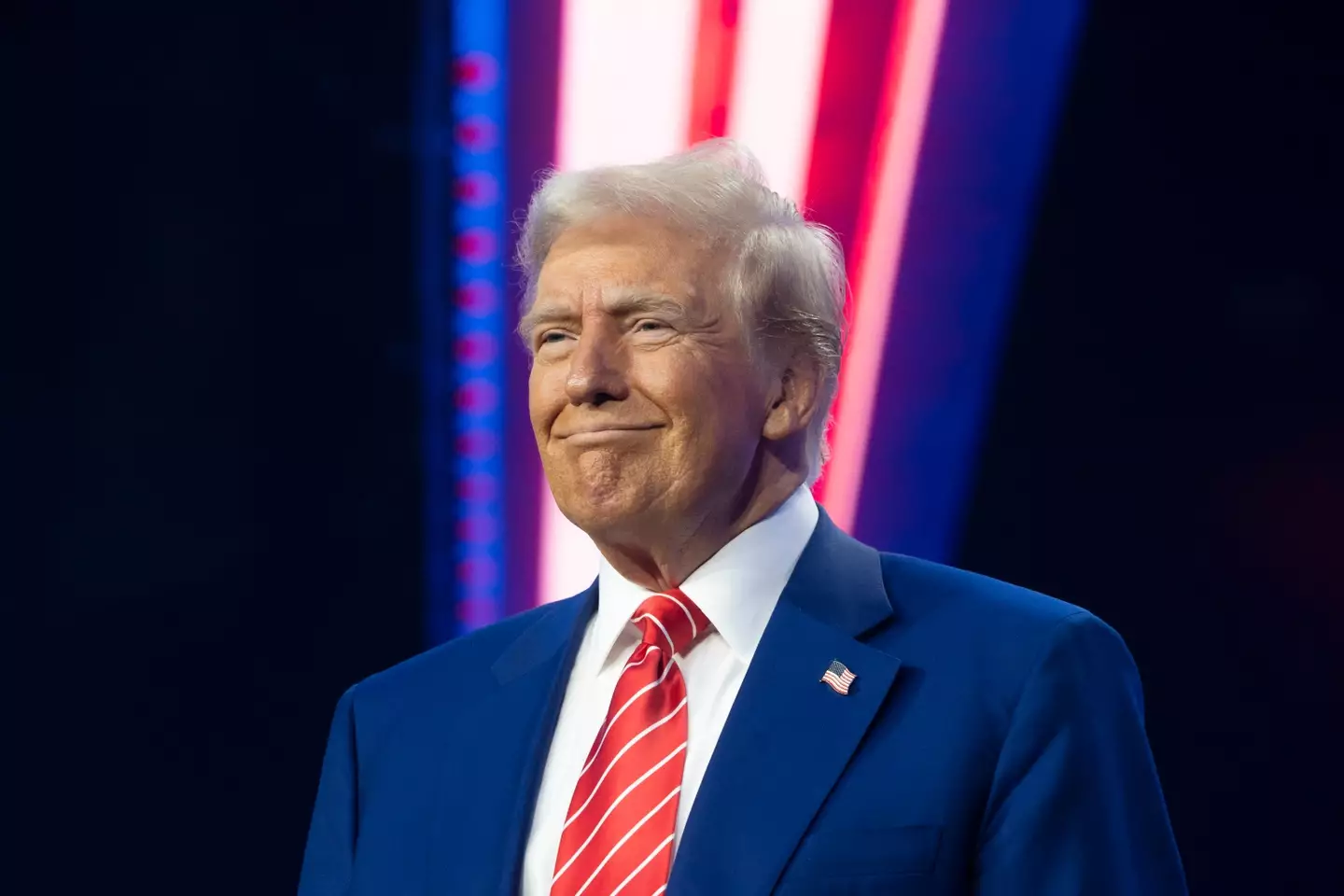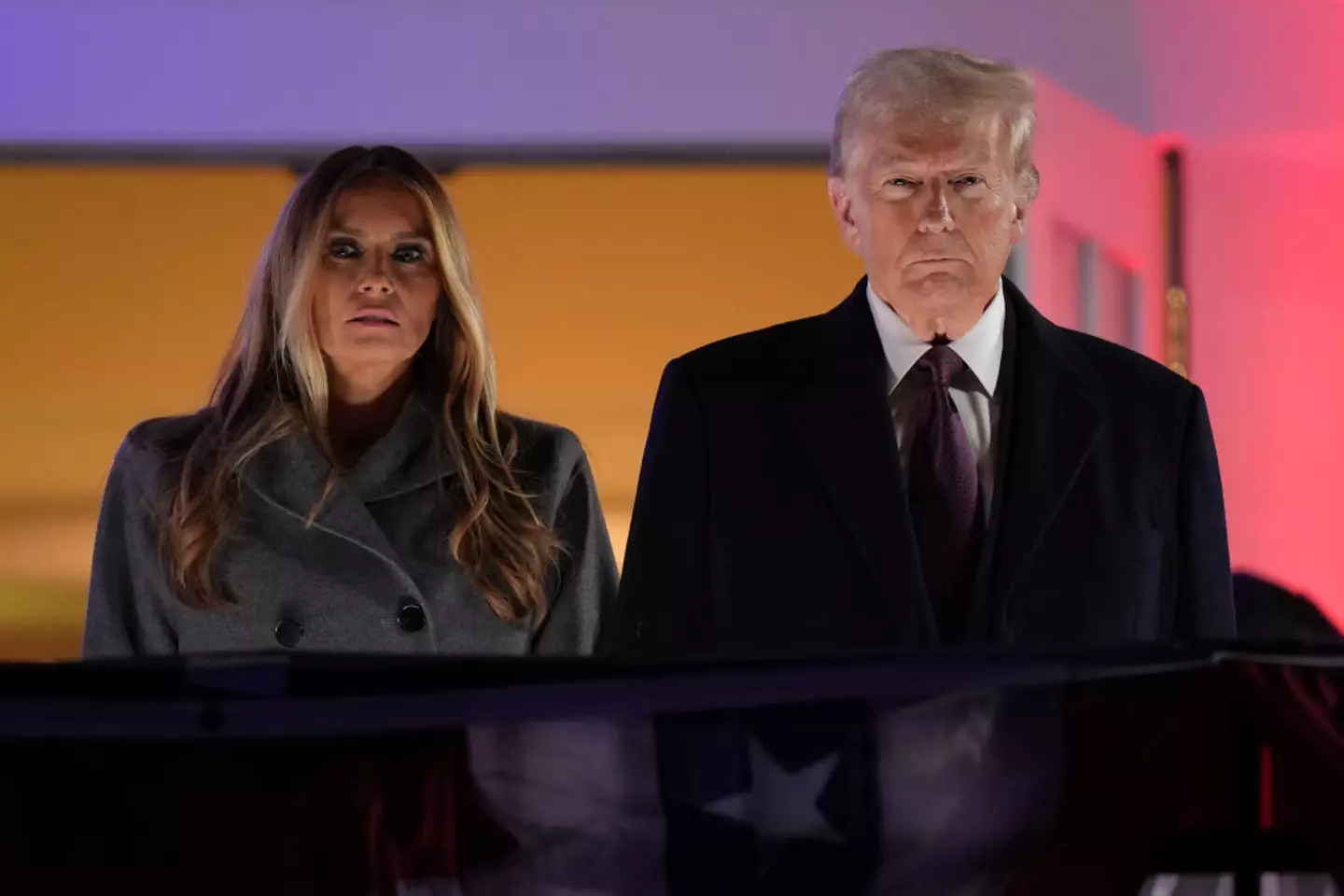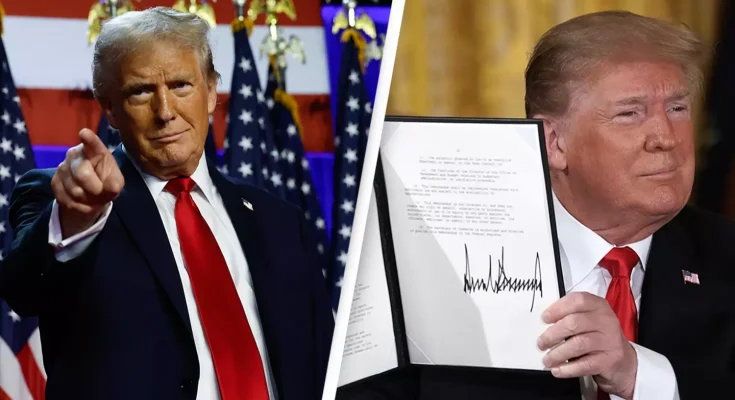Donald Trump is planning to prepare more than 100 executive orders as he becomes president for a second time.
After winning November’s US election against Kamala Harris, Trump officially takes office today (January 20), for the first time since 2021.
Now, Trump has vowed to make a lot of bold changes to the country once he’s inaugurated – from making the US the ‘crypto capital of the planet’ to freeing some of the January 6 rioters.
It’s been reported by AP that Trump plans on preparing over 100 executive orders on his first day in the White House.
Trump’s allies have reportedly spent time preparing documents that he can sign quickly, on issues including deportation, school gender policies, and vaccine mandates, without input from Congress.
“There will be a substantial number,” said Senator John Hoeven, R-N.D.
What are executive orders?
.jpg)
Donald Trump signing a Covid-19 vaccine executive order in 2020 (SAUL LOEB/AFP via Getty Images)
An executive order is a ‘rule’ issued by the president to an executive branch of the government which has ‘the force of law’.
They do not require congressional approval but are subject to legal and judicial review.
Executive orders remain in place until they either expire, are canceled or are revoked – usually by subsequent presidents.
What is Trump expected to make law with his executive orders?
At his Washington rally on Sunday (January 19), Trump promised ‘by the time the sun sets’ tonight he will have signed dozens of new executive orders.
“Expect shock and awe,” Texas Senator Ted Cruz said.
These will concern tightening immigration, changes to subjects taught in schools and the ‘unwinding’ of diversity, equity and inclusion programs for the federal workforce, as well as laying the groundwork to reduce staff.

Trump will become the 47th US president (Rebecca Noble/Getty Images)
Trump is also set to pardon some January 6 rioters as well as further roll back Biden administration policies, including his so-called electric vehicle mandate and his green energy policies.
Birthright citizenship could be ended, but people who complete college in the US could now be eligible for a green card.
Elsewhere, transgender women could be prevented from competing in women’s sports and gender-affirming care practices could also be ended.
The US TikTok ban could also be temporarily revoked, while Trump considers an executive order to suspend the app’s ‘ban or sale law’ for 90 days.
Can you contest an executive order?

Melania and Donald Trump (Andrew Harnik/Getty Images)
Yes, executive orders can be contested.
Firstly, they need to work within the confines of the law and each one is meant to be reviewed by the Office of Legal Counsel for ‘form and legality’.
This doesn’t always happen, however.
Orders can be overturned in court if they’re deemed unconstitutional, or if a president is found to have ‘lacked authority’ to issue them.
Courts can be used to confirm an executive order, as well.
Back in 2017, when Trump attempted to impose a travel ban on arrivals from several majority-Muslim countries, the order was challenged in the judicial system. It was eventually deemed legal by the Supreme Court, but only after alternations were made.
Congress can also pass a law to override executive orders, however, a president still has a ‘veto’ over that law, according to the National Constitution Center.



